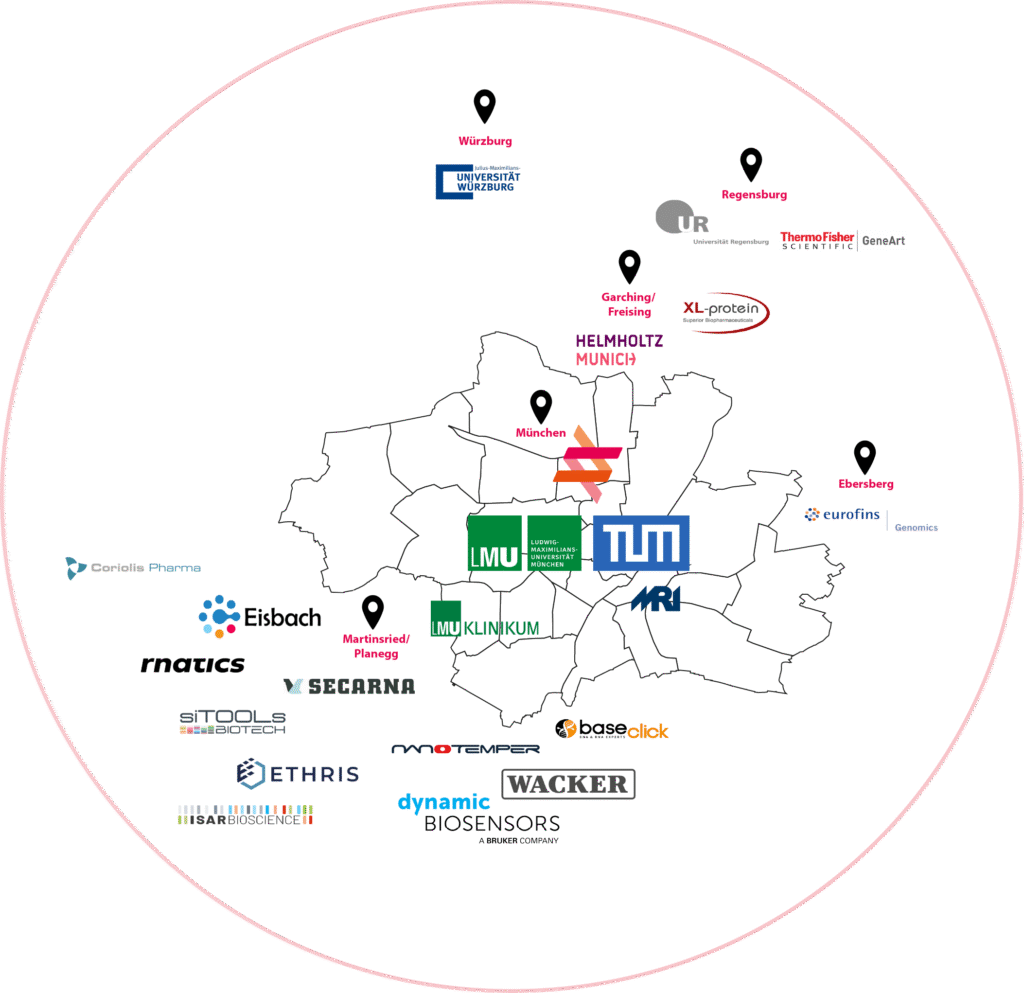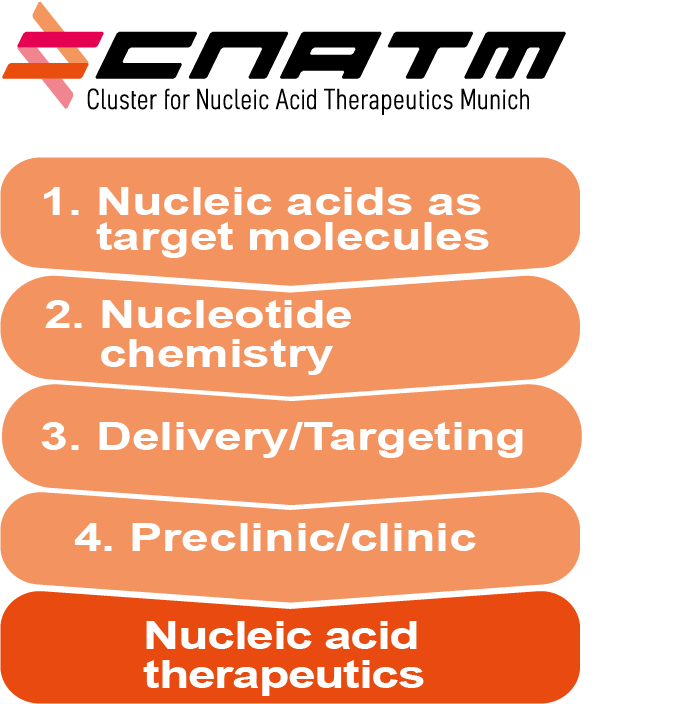CNATM is one of 14 winners of the Clusters4Future initiative by the Federal Ministry of Education and Research (BMFTR). The cluster forms an innovation network of science and industry, which is funded with five million euros annually by the federal government, the state of Bavaria, and participating companies. The research network consists of scientists from the universities of LMU Munich and TUM, with participation from the universities of Regensburg and Würzburg, the Helmholtz Center Munich, and 14 companies from the Munich region.
The CNATM's multilateral collaborations are creating a network from which novel nucleic acid-based active substances and next-generation vaccines are to be developed that will open up completely new therapeutic approaches in medicine and thus help many people.
The latest discoveries give us hope that the ability to design nucleic acids in a highly specific and theoretically predictable way will open up completely new therapeutic approaches in medicine and thus help many people. There is no substance class that is better suited to personalised medicine than nucleic acids. The cluster aims to help nucleic acid therapies achieve a breakthrough and thus make a contribution that makes sense: curing people and creating jobs in and around Munich.

Our vision & our goals
CNATM is creating a network from which novel nucleic acid-based active substances and next-generation vaccines are to be developed. Nucleic acids have so far eluded drug development. Recent discoveries in the field of mRNA vaccines, but also in the field of nucleic acid therapies, now give rise to the hope that nucleic acids will soon be available as new ‘weapons’ in the fight against previously untreatable diseases. The ability to design nucleic acids in a highly specific and theoretically predictable way opens up completely new therapeutic approaches in medicine. New ‘prodrug’ concepts are to be developed for the development of the substance class as anti-viral, anti-cancer or immunomodulators. Nucleic acids are processed in the cluster either as novel siRNAs (small interfering ribonucleic acids) or antisense oligonucleotides (short-chain, synthetic, single-stranded nucleic acids). The targeted chemical modification of nucleic acids using the methods of click chemistry, in which many smaller units are synthesised as a composable solution to a problem, should also enable targeted binding at the site of action and the penetration of the substances into cells. The new possibilities will then be used to produce new next-generation mRNA vaccines. These approaches are therefore flanked by the development of new lipid and polymer strategies for the targeted introduction of nucleic acids into cells.
There is no substance class that is better suited to personalised medicine than nucleic acids. The cluster aims to help nucleic acid therapies achieve a broad-based breakthrough. In doing so, we are pursuing various goals.


Scientists from very different disciplines are working together to achieve these goals. Chemistry researchers are developing new nucleic acid chemistry. Scientists from biochemistry and cell biology are researching sites and principles of action. Pharmacists are testing the active ingredients and polymer chemistry researchers are developing new delivery strategies. The physicians in the cluster are focussing their scientific efforts on the areas with the highest unmet medical needs. With the development of the first mRNA vaccine, Germany currently has a small lead in drug development, which is to be continuously expanded and further developed.
